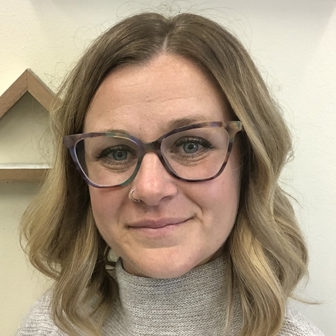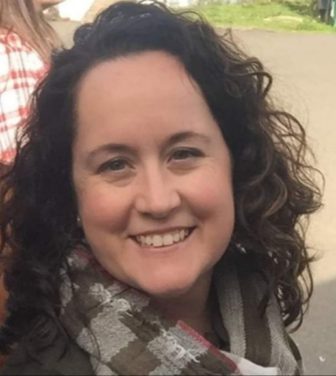![]() We remember thinking just a few weeks before COVID-19 that everything was all just too much. There was too much on the schedule, we needed to be in three places at once, and everything and everyone was demanding our undivided attention.
We remember thinking just a few weeks before COVID-19 that everything was all just too much. There was too much on the schedule, we needed to be in three places at once, and everything and everyone was demanding our undivided attention.
This feeling of being overwhelmed by demands to be here, be there, do this or write that reminded us of the expectations we place on the young people and families we serve. Essentially, our youth justice system constantly asks people to do things differently and make immediate changes.

Kate Pearson
Then “The Great Pause” happened. The coronavirus hit our county and everything we knew about probation (and the world) paused. Suddenly, we were the ones who had to shift quickly into a whole new way of life.
Week one of our county’s pause brought many fears, anxieties and questions. Are we going to be allowed to work? How can we continue to serve our young people and families without being able to visit them, have court, have access to our community partners and programs? What impact would this new way of life have on our young people and families? How would we hold young people accountable when our supervision looks so entirely different?

Susan Miller
We are trained to believe that the system works one way. Perhaps what we are learning from this Great Pause is that we don’t need the traditional tools, that probation can be done a different, better way.
Week two of the Great Pause brought even more uncertainty. But we had to pivot and get to work. We asked ourselves what our youth and families need during this time to be safe, healthy, cared for? How can we assist?
After lots of collaboration with our colleagues, we leaned into the values and structures that Pierce County, Wash., already has in place. We formed work groups, connected with all families by phone, Facetime or Zoom and we shared a lot of resources. It was very important to us that youth and families involved with probation heard the message that we see you and we care for you.
OBP solves accountability problem
In the weeks that have followed, we have been hard at work to shift our supervision practices to ensure we are meeting the needs of young people, families and the court. One of the primary questions that emerged was how do we hold youth accountable without court or access to traditional sanctions. Often people say accountability when they mean punishment. To us, accountability is acknowledging the behavior occurred, reflecting on the impact the behavior had and developing a strategy for changing said behavior.
We found the answer to accountability in our department’s Opportunity-Based Probation (OBP) model. OBP is a new and innovative approach to behavior change that recognizes adolescent brains are more responsive to rewards than the threat of punishment. The new probation practices reflect guided principles around:
- family engagement
- structured goal setting
- rewards
- positive youth development.
OBP has enabled young people to stay focused on their goals for behavior change. During these untraditional times, we are continuing to set tangible and attainable goals with young people and their caregivers — with an incentive matched to what the young person enjoys. Maintaining and increasing this practice allows us to circle back and ask the young people: “What do you feel you can do now? How can we support you to follow through with your choice?”
Meeting regularly with young people and families through teleconferencing and problem solving without the direct involvement of the court has been — dare we say — easy? We have learned that we don’t need a formal hearing for everyone to feel heard and for accountability to be had. And we have been reminded that we are the support for youth and families, not the experts on what they need.
With all of this together, we have been able to build on our foundation of relationships with young people and partnerships with families. We’re moving forward without the traditional tools we have been accustomed to.
The gift we were given when the world stopped was perspective. It’s a once-in-a-lifetime opportunity to pause and reflect on the importance of our work, to reimagine our role and focus on what we can accomplish together when we are all forced to get real uncomfortable and think outside the box.
Kate Pearson has been a probation officer with Pierce County Juvenile Court for six years. She has a background in working with youth with mental health challenges, which influences her work in probation.
Susan Miller has been a probation officer with Pierce County Juvenile Court for 13 years. She has worked with high-risk youth, including specialized caseloads with juvenile sex offenders and chemically dependent youth.
This post originally appeared on JDAIconnect.org.
